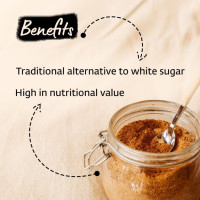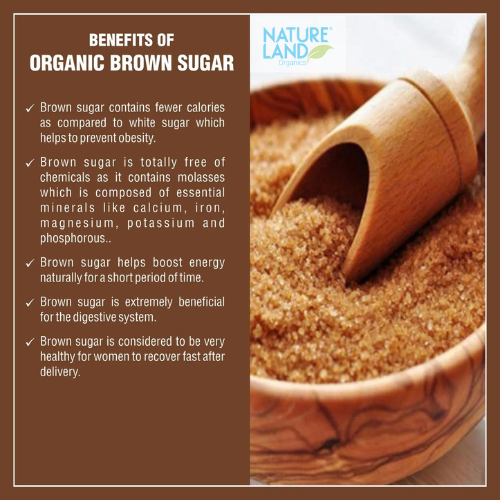A complete list for identifying and avoiding sugar chemicals in packaged foods
A complete list for identifying and avoiding sugar chemicals in packaged foods
Blog Article
The Scientific Research Behind Sugar Chemicals: What Consumers Need to Know
When you consider sugar, do you understand what kinds you're really consuming? It's not almost the pleasant preference; the kind of sugar you pick can substantially affect your health. Recognizing the distinctions between all-natural and included sugars is important. But there's even more to it-- how sugars impact your body's metabolism can result in serious wellness repercussions. As you consider your dietary selections, you'll wish to discover the covert complexities of sugar and its effects on your well-being. sugar chemicals.
Comprehending the Essentials of Sugar: Kinds and Sources
Sugar plays a crucial duty in our diet plans, yet not all sugars are created equal. You'll run into 2 primary kinds: all-natural and added sugars. Natural sugars, discovered in fruits, veggies, and dairy products, featured advantageous nutrients and fiber. They're taken in extra slowly, offering a steadier energy launch. On the various other hand, added sugars are those you find in processed foods, like sweets, soda, and baked products. These sugars commonly add vacant calories and can lead to health problems when consumed in excess.
Sources of sugar vary widely. While fruits and honey provide natural sweetness, products like high-fructose corn syrup and table sugar add to sugarcoated consumption. It's vital to review tags and recognize what you're consuming. By acknowledging the different types and resources of sugar, you can make enlightened selections that profit your wellness while still enjoying the sweet taste in your diet regimen.
The Biochemistry and biology of Sugar: Just How It Influences Our Bodies

Fructose, found in fruits and sugarcoated, is metabolized differently. It mainly goes to your liver, where excessive usage can lead to fat build-up, potentially triggering liver concerns.
Excessive sugar, specifically sugarcoated, can cause swelling and alter gut microbiota, which can affect your total wellness. By recognizing these biochemical processes, you can make informed options regarding your sugar consumption and its effect on your well-being.

The Metabolic Paths of Sugar: Energy and Beyond
When you eat sugar, your body launches a complicated series of metabolic pathways that expand past simply giving power. Initially, your digestive system breaks down sugars into glucose, which enters your blood stream. This surge of glucose signals your pancreatic to launch insulin, a hormonal agent that assists cells soak up the sugar for instant power.
However, not all glucose is used as soon as possible. Your body can keep excess glucose in the liver and muscles as glycogen for later usage. If those stores are complete, it can transform the surplus into fat.
Beyond power, sugar metabolism likewise affects different biochemical processes. For example, it contributes in synthesizing particular amino acids and works as a precursor for nucleotide manufacturing, vital for DNA and RNA. This highlights how sugar isn't simply gas; it's indispensable to numerous physical features, showcasing the complexity of its metabolic pathways.
The Influence of Sugar on Health: Illness and Problems
When you eat too much sugar, you may boost your risk of obesity and related health and wellness concerns. This excess sugar can also add to diabetes mellitus and heart disease, creating a harmful cycle for your general wellness. Recognizing these connections is essential for making informed dietary choices.
Sugar's Role in Weight problems
Sugar has a considerable duty in the excessive weight epidemic, affecting just how our bodies procedure calories and shop fat. When you eat sweet foods and beverages, your body obtains a fast ruptured of energy, but it commonly causes eating more calories than needed. This excess sugar is exchanged fat, adding to weight gain. Furthermore, sugar can cause desires, making it more challenging to withstand undesirable snacks and bigger parts. The wonderful taste can also mask the nutritional value of foods, leading you to choose high-calorie options rather of much healthier options. Decreasing sugar intake can aid you manage Clicking Here your weight much better, reduced your danger of obesity-related problems, and promote total wellness. Bearing in mind sugar consumption is key to keeping a healthy and balanced way of life.
Diabetes Mellitus Danger Factors
Too much sugar usage can greatly enhance your danger of establishing diabetes mellitus, specifically kind 2 diabetes. When you eat high quantities of sugar, your body struggles to produce enough insulin to manage blood glucose levels effectively. It's important to check your sugar consumption and make much healthier options, like choosing for whole foods and balanced meals, to assist minimize your danger and preserve much better overall health.
Heart Illness Connections
While you may consider sugar as just a wonderful treat, its link to cardiovascular disease is a lot a lot more significant than you might understand. High sugar consumption can cause weight problems, high blood pressure, and swelling, all of which enhance your threat of heart condition. When you take in excessive sugar, your body struggles to take care of insulin degrees, bring about insulin resistance. This problem can advertise the accumulation of fat around your organs, better stressing your heart. Furthermore, sweet foods often change healthier choices in your diet regimen, denying you of crucial nutrients. To protect your heart, consider reducing your sugar intake and choosing for entire foods rather. Making these changes now could greatly profit your cardiovascular wellness in the long run.
Navigating the Globe of Artificial Sweeteners: Advantages And Disadvantages
When it concerns sweetening agents, comprehending their wellness effects is essential for making informed selections. You'll find a selection of choices available, each with its very own advantages and downsides. Let's explore exactly how these sweeteners can affect your health and the most typical types you might resource come across.
Wellness Impacts Introduction

As you check out the world of fabricated sugar, it is essential to assess their pros and cons for your wellness. These sugar substitutes can help you cut calories and handle weight, making them appealing for several. Some researches suggest potential links in between synthetic sweeteners and health concerns, such as metabolic problems or digestive tract microbiome adjustments.
Usual Kinds Clarified
Comprehending the numerous types of fabricated sweeteners can aid you make notified selections regarding your diet regimen and health. Aspartame is typically found in diet sodas and processed foods yet might trigger migraines in some individuals.
While these sugar can help in reducing calorie consumption, they come with advantages and disadvantages - sugar chemicals. Some individuals may experience digestive system concerns or cravings with specific types. It is crucial to check out labels and understand just how each sweetener affects your body, so you can choose what's ideal for your way of life and health and wellness goals
Sugar Alternatives: All-natural vs. Artificial
While you may be searching for methods to lower sugar intake, maneuvering the landscape of sugar alternatives can be complicated. You'll discover two major classifications: natural and synthetic. Natural choices, like stevia and monk fruit, originated from plants and commonly include fewer calories. They could offer a browse around this site sweeter taste without the blood glucose spikes connected with conventional sugar. Nonetheless, some individuals might discover the aftertaste repulsive.
On the other hand, artificial choices, such as aspartame and sucralose, are synthetic and usually much sweeter than sugar, enabling you to make use of less. sugar chemicals. They're preferred in several low-calorie products. Yet, concerns concerning long-term health effects linger, leading some customers to walk very carefully.
Ultimately, whether you pick all-natural or synthetic alternatives, it's vital to check out tags and comprehend what you're taking in. Each alternative has its advantages and disadvantages, so locate what jobs best for your taste and wellness objectives.
Making Informed Dietary Options: Tips for Decreasing Sugar Intake
Decreasing sugar consumption does not need to feel frustrating, particularly when you begin making informed nutritional choices. Read labels carefully. Search for sugarcoated listed under numerous names, like high-fructose corn syrup or agave nectar. Next, pick entire foods whenever feasible. Fresh fruits, veggies, whole grains, and lean healthy proteins are naturally reduced in sugar and nutrient-dense.
You can likewise swap sweet snacks for much healthier choices. Attempt nuts, yogurt, or fruit instead of sweet or breads. When consuming drinks, go with water, bitter tea, or carbonated water instead of soft drink and sweetened drinks.
Furthermore, progressively decrease sugar in your dishes. You could find you appreciate the taste of much less sweet taste in time. Be conscious of portion sizes; smaller portions can help you handle sugar consumption without really feeling deprived. Making these little adjustments can lead to long lasting routines that profit your health.
Often Asked Questions
Exactly How Do Sugar Cravings Develop and Exactly How Can I Handle Them?
Sugar food cravings create as a result of hormone variations, stress and anxiety, or habits. You can handle them by consuming well balanced dishes, remaining moisturized, and including healthy and balanced treats. Mindfulness methods likewise assist you acknowledge and manage those yearnings successfully.
What Duty Do Genetics Play in Sugar Metabolism?
Genetics significantly influence how your body metabolizes sugar. Variations in genetics can influence insulin level of sensitivity and hunger guideline, making some individuals a lot more susceptible to yearnings and challenges in managing sugar consumption contrasted to others.
Are There Any Environmental Influences of Sugar Manufacturing?
Yes, sugar production contributes to logging, water contamination, and habitat destruction. As you eat sugar, consider its ecological impact, consisting of chemical use and dirt deterioration, which can impact environments and neighborhoods around sugar haciendas.
Exactly How Do Different Cultures Perceive and Consume Sugar?
Various cultures regard and take in sugar in one-of-a-kind methods. You might locate it sweetening tea in some regions, while others incorporate it right into tasty recipes, showcasing diverse culinary traditions that highlight sugar's flexibility and cultural relevance.
What Are the Long-Term Effects of High Sugar Intake on Mental Health And Wellness?
High sugar consumption can cause mood swings, anxiousness, and anxiety. Over time, it impacts your brain's chemistry and may raise the danger of creating psychological health conditions, influencing your general health and life.
Report this page